42 in a simple circular-flow diagram, total income and total expenditure are
The Circular Flow of Money (With Diagram) 4. Circular Flow of Money with the Foreign Sector: So far the circular flow of income and expenditure has been shown in the case of a closed economy. But the actual economy is an open one where foreign trade plays an important role. Exports are an injection or inflows into the economy. They create incomes for the domestic firms. AQA | Economics | Subject Content – A-level | The national ... Nov 18, 2021 · The circular flow of income concept, the equation income = output = expenditure, and of the concepts of equilibrium and full employment income. The difference between injections and withdrawals into the circular flow of income. ... The model shows that specialisation and trade can increase total output.
In a simple circular-flow diagram, total income and total ... In a simple circular-flow diagram, total income and total expenditure are asked Aug 15, 2017 in Economics by Mosaik a. never equal because total income always exceeds total expenditure. b. seldom equal because of the ongoing changes in an economy's unemployment rate. c. equal only when the government purchases no goods or services.
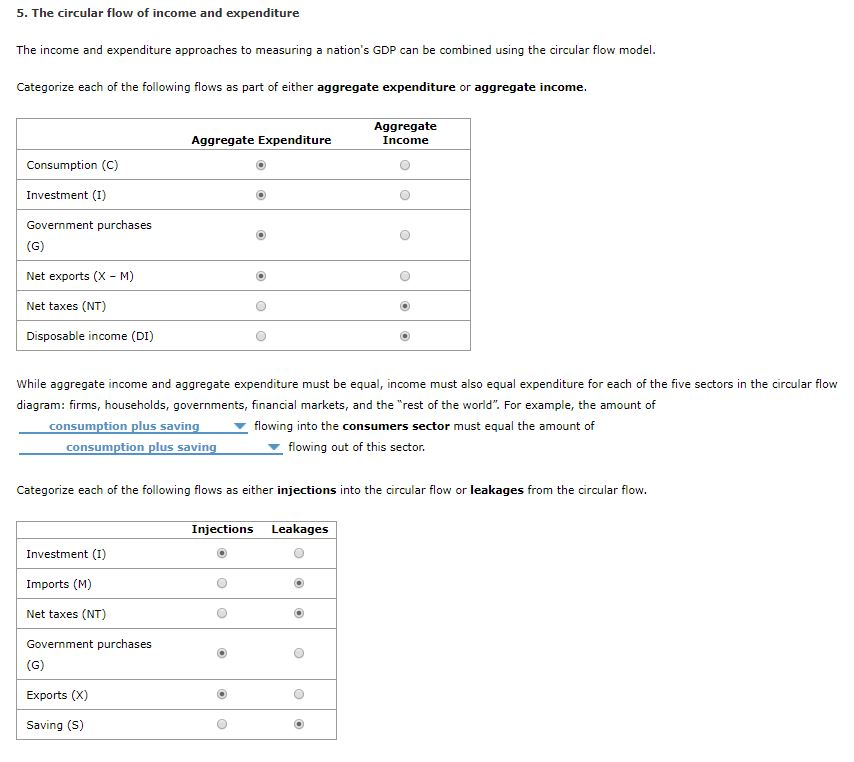
In a simple circular-flow diagram, total income and total expenditure are
Chapter 15 Flashcards - Quizlet In a simple circular-flow diagram, firms A. purchase resources from households. B. purchase the output produced by households. C. receive income by selling resources to households. D. All of the above are correct A 5. aplia aplia The government's purchases of goods but not its purchases of services are included in GDP. a. TRUE b. FALSE B Solved Instructions: Answer ALL questions in this ... - Chegg in a simple circular-flow diagram total income and total expenditure are a. never equal because total income always exceeds total expenditure b. seldom equal because of the ongoing changes in an economy's unemployment rate c. equal only when one ringgit is spent on goods for every ringgit that is spent on services d. always equal because every … Problem Set 3 Flashcards - Quizlet In a simple circular-flow diagram, how are total income and total expenditure interrelated? (a) They are seldom equal because of the dynamic changes that occur in an economy. (b) They are equal only when all goods and services produced are sold.
In a simple circular-flow diagram, total income and total expenditure are. (Solved) - 11. In a simple circular-flow diagram, total ... 11. In a simple circular-flow diagram, total income and total expenditure are a.never equal because total income always exceeds total expenditure. b.seldom equal because of the ongoing changes in an economy's unemployment rate. c.equal only when the government purchases no goods or services. Circular Flow of Income and Methods of Calculating ... One can explain the circular flow of income and expenditure with three types of economy, namely – two-sector economy, three-sector economy and four-sector economy. Typically, there are 3 phases of the circular flow of income in a simple economy or closed economy – Production Phase: It is primarily concerned with income generation. Macroeconomics Quiz 5: GDP Flashcards | Quizlet In a simple circular-flow diagram, total income and total expenditure are A. equal only when the government purchases no goods or services. B. never equal because total income always exceeds total expenditure. C. always equal because every transaction has a buyer and a seller. Measuring the Economy - Bureau of Economic Analysis The circular flow of income and expenditures To better understand the economy and the NIPAs, con-sider a simple economy consisting solely of businesses and individuals, as reflected in the circular flow diagram below: and the contributions of these flows to the accumulation of fixed assets. The NIPAs provide a framework for presenting actual
Circular Flow | Principles of Macroeconomics Circular Flow. The circular flow diagram pictures the economy as consisting of two groups — households and firms — that interact in two markets: the goods and services market in which firms sell and households buy and the labor market in which households sell labor to business firms or other employees.To better understand the economy and the NIPAs, consider a simple … Circular flow of income - Wikipedia Overview. The circular flow of income is a concept for better understanding of the economy as a whole and for example the National Income and Product Accounts (NIPAs). In its most basic form it considers a simple economy consisting solely of businesses and individuals, and can be represented in a so-called "circular flow diagram." In this simple economy, individuals … The Circular Flow of Income and Expenditure Adding (X - M) in the above equation, we get ADVERTISEMENTS: Y = C + I + G + (X - M) The only difference in the circular flow of income between a closed economy and an open economy is that, in a four-sector economy, households purchase foreign-made goods and services (i.e., imports). The Circular Flow of Income | S-cool, the revision website Put very simply, savings are deposited in the banking sector or the capital markets, and the firms borrow to invest from the same sort of sources. In the first diagram, E (Expenditure) = O (Output) = Y (Income). Now there are two types of expenditure: consumption (by households) and investment (by firms), So E = C + I.
Measuring Output Using GDP | Boundless Economics Circular flow. The continuous flow of production, income and expenditure is known as circular flow of income. It is circular because it has neither any beginning nor an end. The circular flow involves two basic assumptions: 1. In any exchange process, the seller or producer receives what the buyer or consumer spends. 2. Chapter 15, Macro homework 1 Flashcards - Quizlet In a simple circular-flow diagram, total income and total expenditure are A. never equal because total income always exceeds total expenditure. B. equal only when the government purchases no goods or services. C. always equal because every transaction has a buyer and a seller. Guide to The Basic Keynesian Model (With Diagram) Average propensity to consume (APC) is computed after dividing the total consumption expenditure by the related disposable income. APC = C/Y d. On a straight line consumption function (a 0 + bY d) as shown in Fig. 11.2 (showing constant MPC) APC will be falling with the higher levels of Y d and increasing with the lower levels of Y d. MACRO Chapter 23 Flashcards - Quizlet In a simple circular-flow diagram, total income and total expenditure are a. never equal because total income always exceeds total expenditure. b. seldom equal because of the ongoing changes in an economy's unemployment rate. c. equal only when one dollar is spent on goods for every dollar that is spent on services.
Econ 2105: Quiz 1 Flashcards | Quizlet In a simple circular-flow diagram, total income and total expenditure are: A: Never equal because total income always exceeds total expenditure B: Seldom equal because of the ongoing changes in an economy's unemployment rate C: Equal only when the government purchases no goods or services
8 Main Effects of Change in Investment - Economics Discussion This implies that at the same equilibrium level of income Y 0, total investment spending increases from aY 0 to bY 0.In other words, there is more desired investment at each level of income. As a result equilibrium income rises from Y 0 to Y 1.. Thus while a rise in planned investment expenditure raises equilibrium national income, a fall in planned investment …
Solved In a simple circular-flow diagram, how are total ... Correct answer is Option B. A. Incorrect, as in simple circular flow of income diagram income and expenditures are al …. View the full answer. Transcribed image text: In a simple circular-flow diagram, how are total income and total expenditure interrelated? Select one: O a. They are seldom equal because of fluctuations in the business cycle ...
The Circular Flow of Income Explained - ROM Economics The circular flow of income is a theory that describes the movement of expenditure and income throughout the economy. In an economy households provide factors of production, such as labour, to firms. Firms use these factors to produce goods and services which they sell to the households. (This is represented by the red, inner loop in the ...
Circular Flow of Income Diagram - Economics Help Simple circular flow of income diagram - showing households/firms and exports/imports and government spending/tax. ... rent) This is the total income received by people in the economy. For example, firms have to pay workers to produce the output. Therefore income flows from firms to households. National Expenditure. Total amount spent on goods ...
Solved > 9. In a simple circular-flow diagram, total ... Question : 9. In a simple circular-flow diagram, total income and total : 2091630. 9. In a simple circular-flow diagram, total income and total expenditure are. a. never equal because total income always exceeds total expenditure. b. seldom equal because of the ongoing changes in an economy's unemployment rate. equal only when one dollar is ...
ECON200 chapter 7 multiple choice Flashcards - Quizlet In a simple circular-flow diagram total income and total expenditure are always equal because every transaction has a buyer and a seller The simple circular-flow diagram illustrates that production generates income so that income and production are the same In an economy consisting of only households and firms, GDP can be computed by:
10 In a simple circular flow diagram total income and ... In a simple circular- flow diagram total income and total expenditure are: A. seldom equal because of the dynamic changes which occur in a economy B. equal only when all goods and services produced are sold C. always equal because every transaction has a buyer and seller. D. Always equal because of accounting rules. C.
In a simple circular flow diagram how are total income and ... 11. In a simple circular-flow diagram, how are total income and total expenditure interrelated? a. They are seldom equal because of fluctuations in the business cycle that occur in an economy. b. They are equal only when all goods and services produced are sold. *c. They are always equal because every transaction has a buyer and a seller. d.
Problem Set 3 Flashcards - Quizlet In a simple circular-flow diagram, how are total income and total expenditure interrelated? (a) They are seldom equal because of the dynamic changes that occur in an economy. (b) They are equal only when all goods and services produced are sold.
Solved Instructions: Answer ALL questions in this ... - Chegg in a simple circular-flow diagram total income and total expenditure are a. never equal because total income always exceeds total expenditure b. seldom equal because of the ongoing changes in an economy's unemployment rate c. equal only when one ringgit is spent on goods for every ringgit that is spent on services d. always equal because every …
Chapter 15 Flashcards - Quizlet In a simple circular-flow diagram, firms A. purchase resources from households. B. purchase the output produced by households. C. receive income by selling resources to households. D. All of the above are correct A 5. aplia aplia The government's purchases of goods but not its purchases of services are included in GDP. a. TRUE b. FALSE B
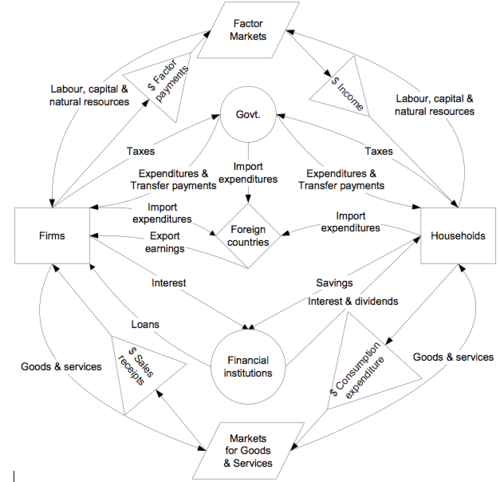




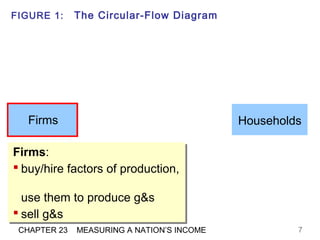

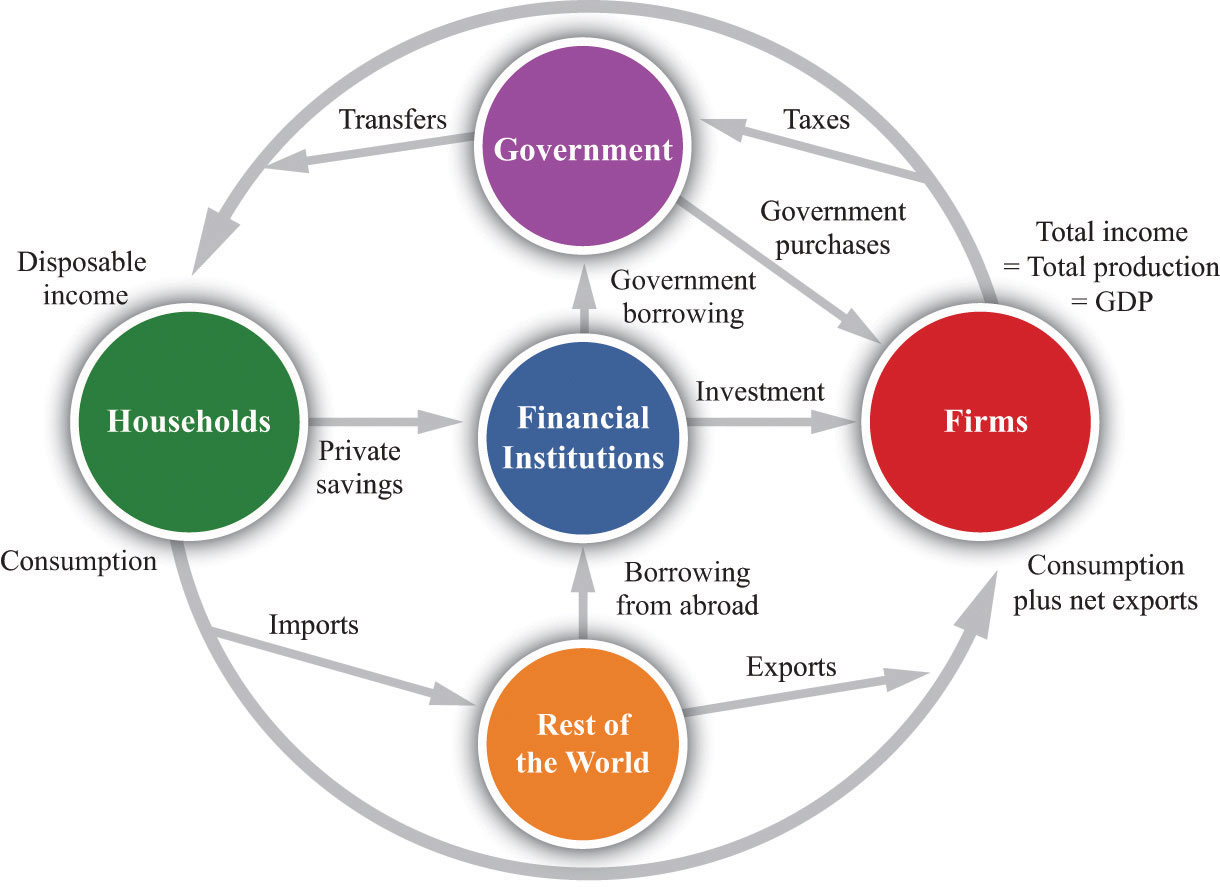



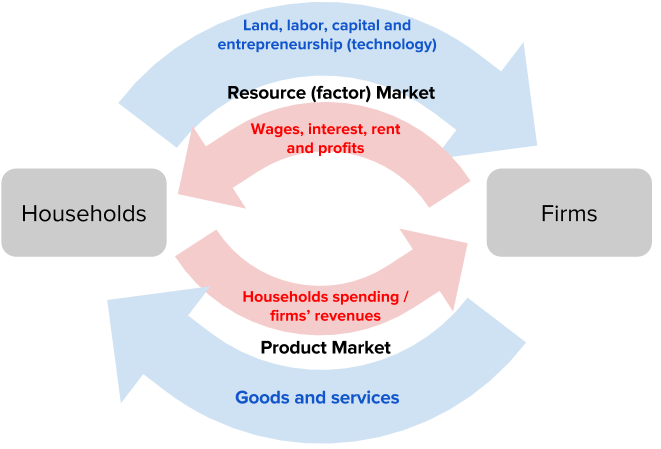

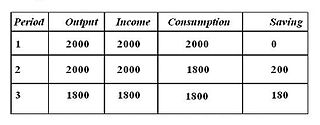
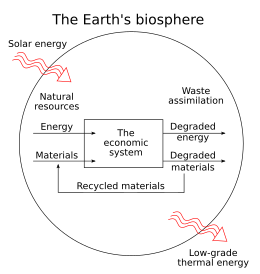





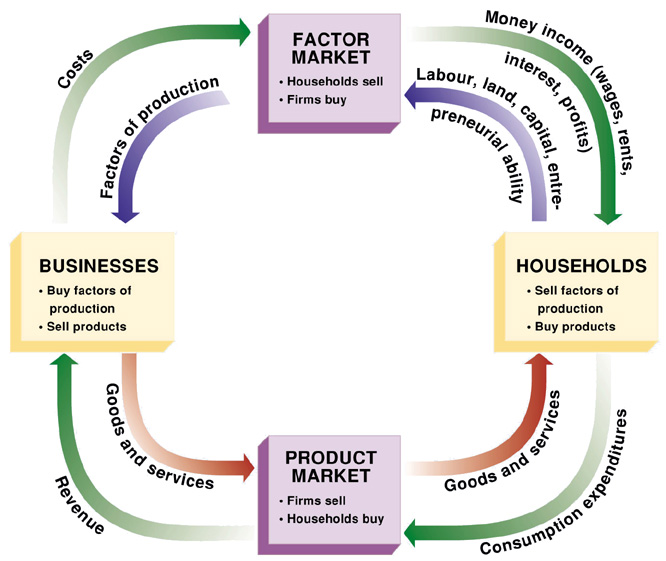

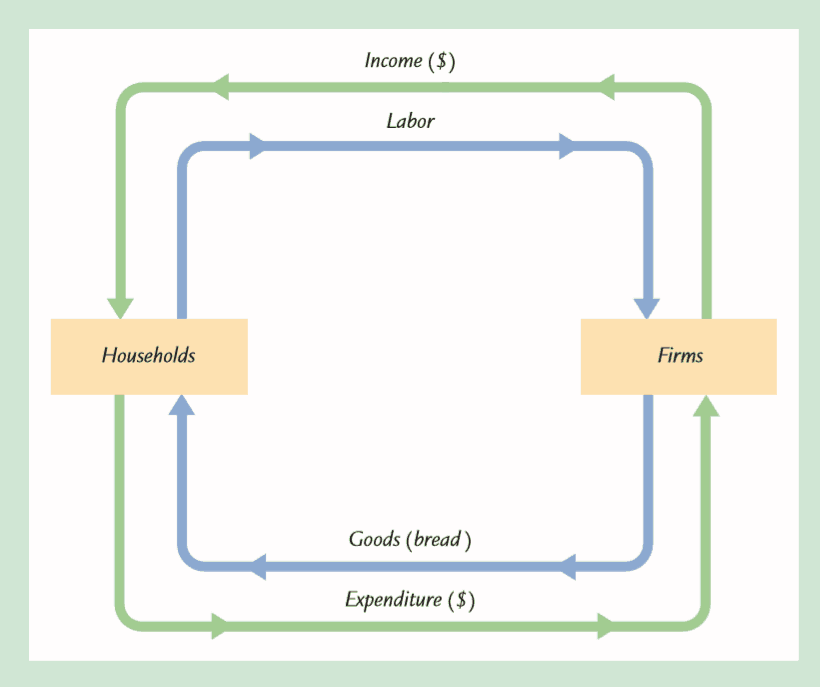

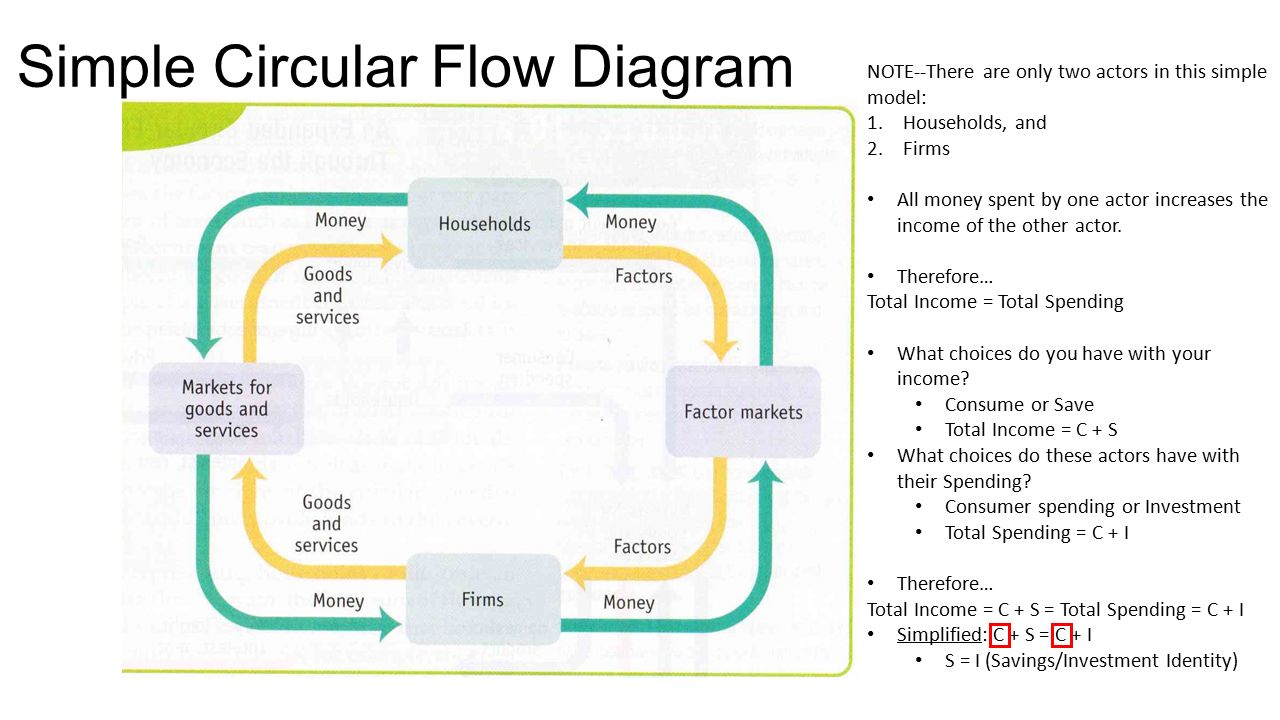

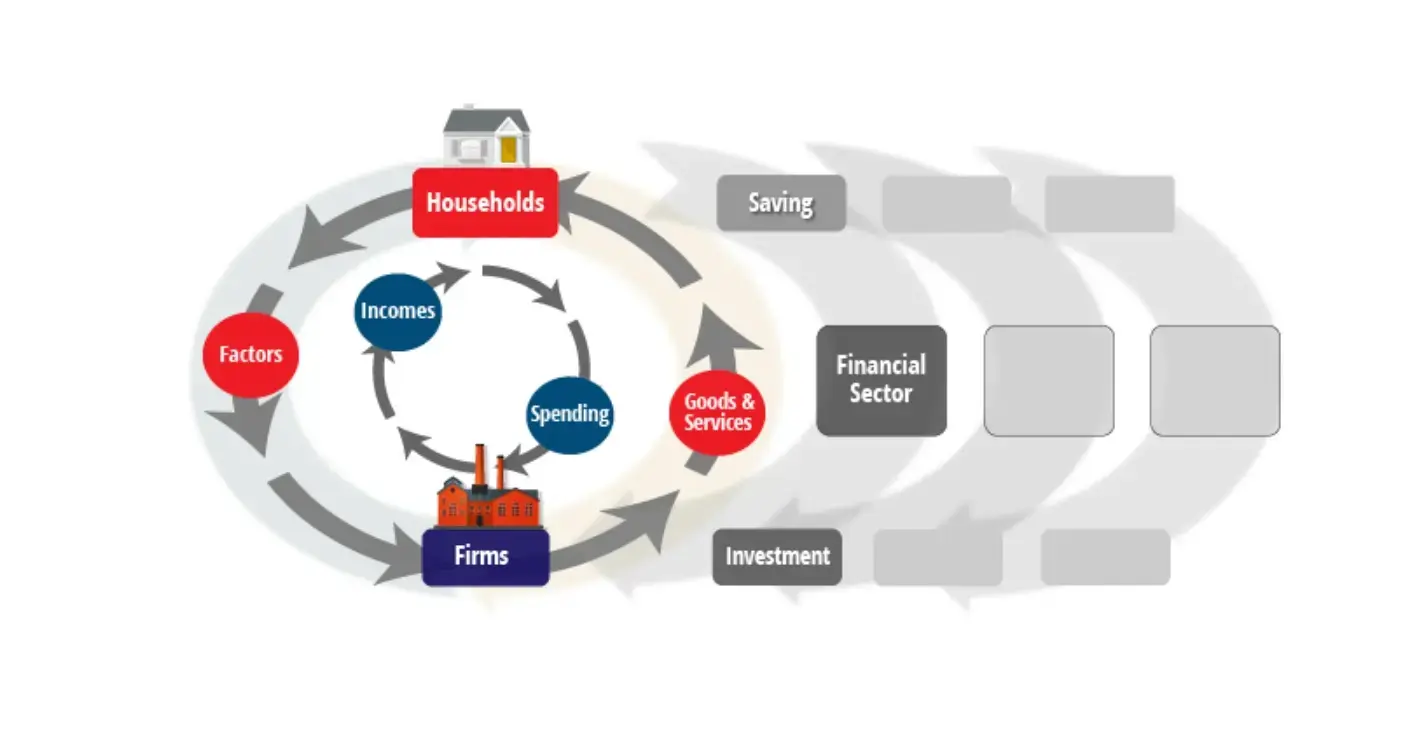
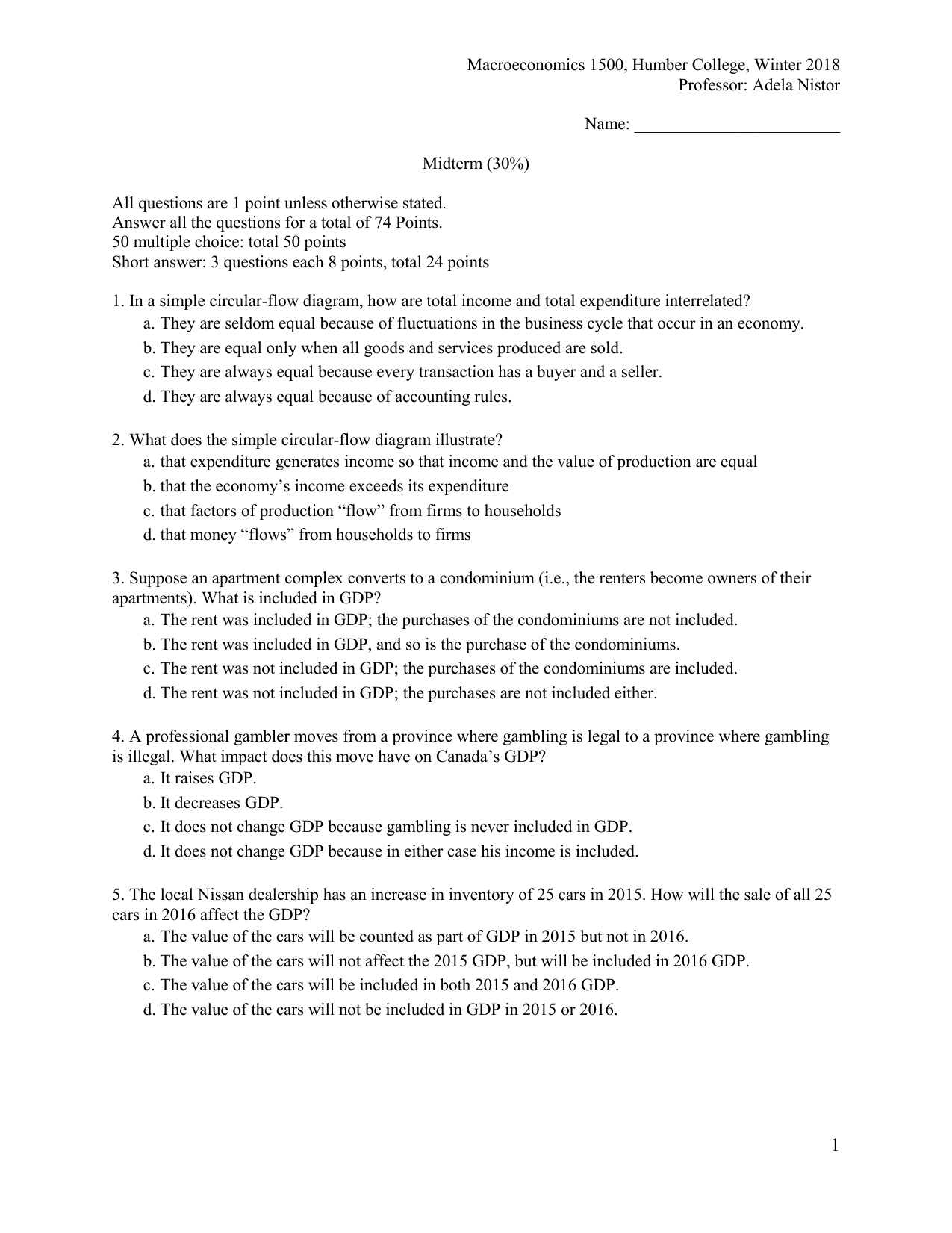


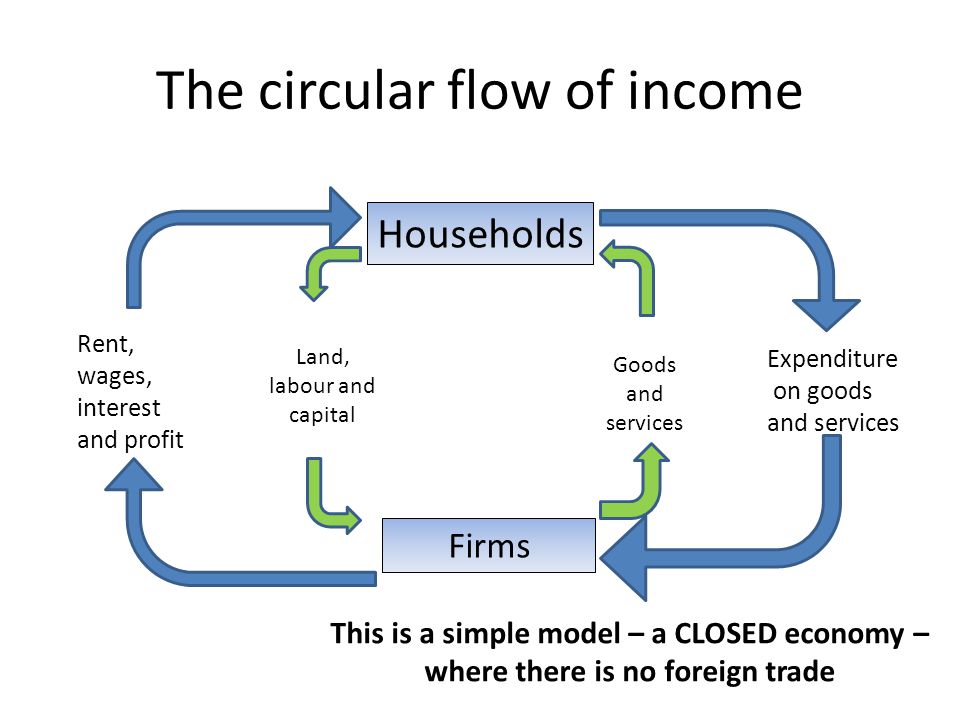
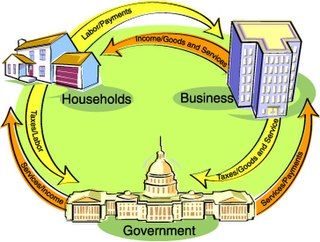
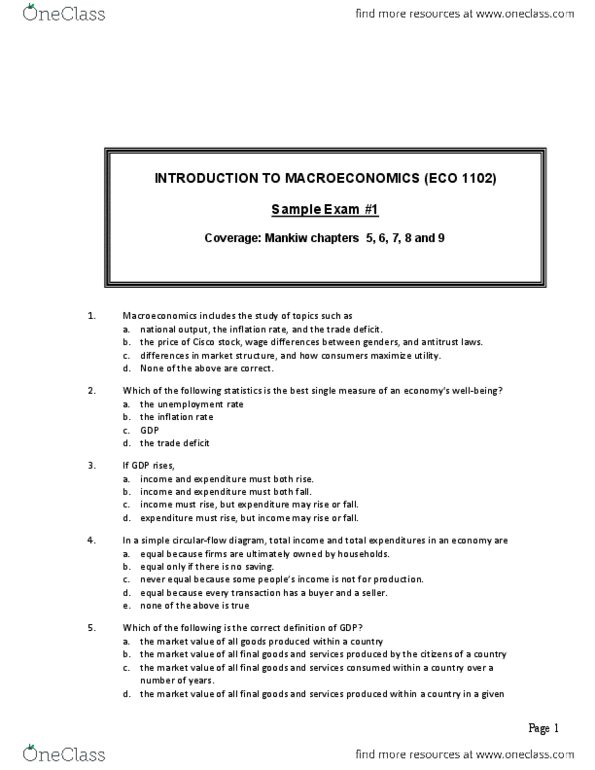


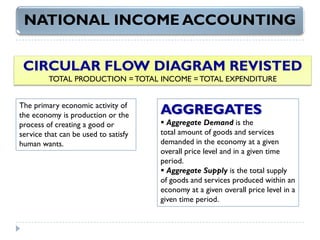


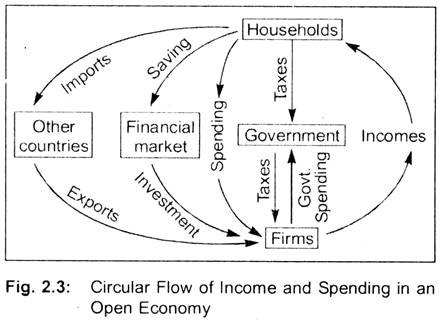
Comments
Post a Comment